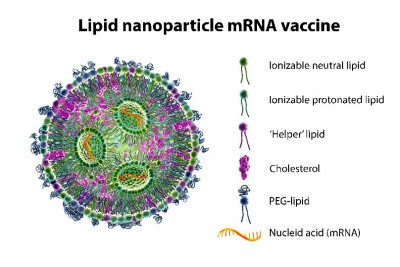
University of Bolton, Deane Road, Bolton. BL3 5AB
Tel:
Email:


“At the University of Bolton, we take great pride in providing a quality, supportive learning environment for our students.”
Professor George E Holmes DL | President & Vice Chancellor
“...tutors are very supportive and you’re not just a student ID number, at this university you are an individual with a name.”
Ellisse Vernon | BSc (Hons) Adult Nursing
Back to menu
Back to menu
Study with an Off-Campus Partner
Back to menu
Back to menu
University of Bolton, why we are the right choice
Location - Bolton, Greater Manchester

01/02/2023
Biomedical engineers create medicine so we can enjoy a better world!
Did you know that biomedical engineering is one of the fastest-growing occupations in the world with a projected international growth rate of 6% from 2020 to 2030? This is because of the increasing technologies and their applications to medical equipment; new scientific innovations creating future life-saving medicines.
2023 is already emerging as a revolutionary year for biomedical engineering. We are going to explore some of the latest innovations and how a BEng (Hons) Biomedical Engineering degree can support those looking to indulge and enjoy a future-proof career.
Now, let’s bring you up to speed with the latest biomedical engineering innovations happening in this essential and dynamic sector:
 New Treatment for Hereditary Blindness
New Treatment for Hereditary Blindness
With around 2 million people living with sight loss in the UK, blindness is something that many people have to live with.
Inheriting a hereditary condition is something that is feared by many. Therefore, what if we told you there was help out there to prevent it? To put it simply, scientists from Oregon State University College of Pharmacy have demonstrated that combining lipid nanoparticles with messenger RNA can penetrate the neural retina and deliver mRNA to the photoreceptor cells which are responsible for creating good vision.
Is There a Cure for Epilepsy?
 Those living with epilepsy face limitations every day in terms of events they may have to miss due to the possibility of experiencing a seizure. But this is where the advancing medical technology that biomedical engineers have access to is fascinating; because those with epilepsy now stand a chance to get help.
Those living with epilepsy face limitations every day in terms of events they may have to miss due to the possibility of experiencing a seizure. But this is where the advancing medical technology that biomedical engineers have access to is fascinating; because those with epilepsy now stand a chance to get help.
Epilepsy is a neurological condition that is triggered by light. However, as we head into 2023 a new method is being released to target the intrinsic behaviour of neurons in the brain to change their long-term behaviour using light. Another revolutionary innovation as it creates the opportunity for potential new treatments for neurological conditions such as epilepsy and autism.
New Radioactive Tumour Implant to Obliterate Pancreatic Cancer
With one in two people being diagnosed with cancer in their lifetime, it is one of the most prominent global illnesses. However, with advancing medical technology and increased funding from the government and charities, survival chances in some cases are getting higher. When we look at pancreatic cancer, for instance, biomedical engineers from Duke University in America have demonstrated the most effective treatment yet. While still in the animal testing phase, this trial revealed results that were far beyond the ordinary. Normally, when testing new treatments, just stopping the growth of the tumour would be deemed a success. However, this one didn’t just stop it. It actually eliminated the tumour in 80% of the tested animals; including those among the most difficult to treat.

Course Highlights
So, you’re interested in joining the next generation of engineers? Here are some of the key highlights you can expect from the biomedical engineering degree at the University of Bolton:
- The course is accredited by the Institute of Mechanical Engineers (IMechE) and the Institute of Physics and Engineering in Medicine
- Students explore the principles and influencing factors of medical engineering and the wider multi-disciplinary engineering context
- In our School of Engineering, students get to access our high-spec instrumentation laboratory, microscopy facility, tissue engineering suite, biomechanics facility, and many more industry-spec workspaces
- Students participate in the annual IMechE challenge, where they design, create, and operate a device to solve real-world problems
- The course was developed with input from key employers; attained due to our strong industry links. This means our students get to work on live industry briefs and have an abundance of placement opportunities
- Students work with internationally-recognised research teams, exploring areas like materials, medical devices, and biological systems, witnessing real-life applications of biomedical devices in sports science and rehabilitation contexts
As we can see, with new medical technology being introduced, the sky is the limit when it comes to new treatments and biomedical engineers are key to this happening. If you want to be a part of the next record-breaking discovery, a BEng (Hons) Biomedical Engineering degree from the University of Bolton could be a great step forward on your journey to a rewarding career.
Bolton students can enjoy a friendly, supportive, and inclusive learning environment, hopefully making their career ambitions a reality.
Want to learn more? Contact us at enquiries@bolton.ac.uk or call on 01204 903807; we are here to help!